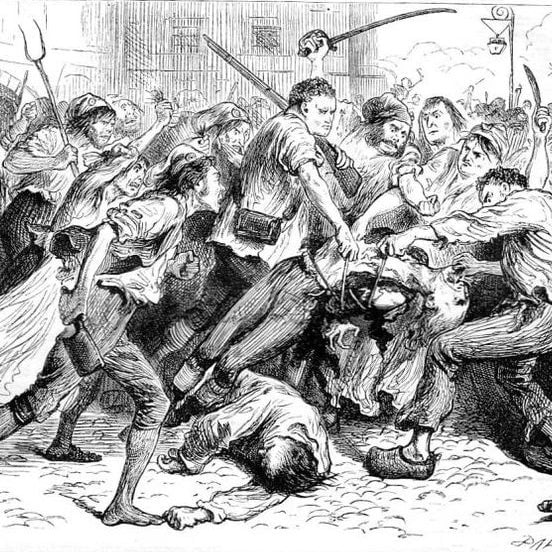European Union incites [sic] its bureaucrats to speak better English
Euro zone policymakers generally issue official statements in English. Unfortunately, many don’t do it so well.

Euro zone policymakers generally issue official statements in English. Unfortunately, many don’t do it so well.
To help them out, the European Court of Auditors released new guidelines (pdf) on the use of 100 English words that have been used incorrectly. ”Our publications need to be comprehensible for their target audience, which is largely British and Irish, and should therefore follow a standard that reflects usage in the United Kingdom and Ireland,” writes Jeremy Gardner, the report’s author.
Some of the mistakes are excusable, especially since many European officials aren’t native speakers of English. But others are, well—here are some of our favorites, in alphabetical order, naturally:
Axis
Some bureaucrats think that “axis” can also mean a general direction, as in this economic regulation from the European Council:
Interim payments and the final balance shall be calculated by applying the co-financing rate for each priority axis laid down by the Commission decision adopting the operational programme concerned.
It should have just been “priority,” the Court of Auditors advises: “This term is particularly unfortunate in the plural because the reader may mistake it for the plural of ‘axe.’”

Badge
Also, badger and to badge. Badges are generally worn by policemen or boy scouts, but multilingual Europeans have evidently stretched the meaning. “The noun ‘badge’ is widely used in the EU institutions to indicate either a service pass or a tag used by employees (‘agents’) to clock in and out. Neither is usually called a badge in English, as the word generally refers to something that is worn (usually pinned, stuck or sewn to the bearer’s outer clothing),” the Court of Auditors explains.
It also notes that people who give out badges are not “badgers,” as some official signs put it, like those in the Court itself. But those get a pass because they “afford some harmless amusement for English-speaking staff.”

Comitology
Somewhere, someone used what sounded like a good, anglicized way of talking about committee procedure. Unfortunately, he or she also made up a word, says the Court:
There are 1,253 instances of the word ‘comitology’ in EUR-Lex [a compendium of EU law]. However, not only does the word not exist outside the EU institutions, but it is formed from a misspelt stem (committee has two ‘m’s and two ‘t’s) and a suffix that means something quite different (-ology/-logy means ‘the science of ’ or ‘the study of ’). It is therefore highly unlikely that an outsider would be able to deduce its meaning, even in context.

Evolution
However you may feel about Charles Darwin, one kind of evolution is just plain wrong, as found in this European Commission working document:
The increase in transport costs leads to a negative evolution of exports and consumption (households have to face increased costs of transport).
Indeed, remarks the Court of Auditors sourly, “‘negative evolution’ is something of an oxymoron.”

Incite
Incite the masses…to buy something? That’s how the word is being used, as in this report on economic restructuring programs:
Such activities shall not incite consumers to buy a product due to its particular origin.
“You cannot therefore, except in some Alice-in-Wonderland parallel universe, incite someone to buy a car, use organic farming techniques or comply with a regulation,” the court contends. Better just to have said “encourage.”

Reflection
The European Court of Human Rights put together a “reflection forum” to investigate an important legal issue. Evidently they should have organized a think tank, instead, according to the report:
In English, reflection is an internal process that takes place within the individual (e.g. ‘I have reflected long and hard on this problem.’) and does not necessarily involve any discussion. As for the curiously named ‘reflection group’, the dictionary definition is ‘a discrete group which is generated by a set of reflections of a finite-dimensional Euclidean space’ (!?!).
Those exclamation and question marks are in the report, by the way.

For what it’s worth, native English speakers in the European Union tend to be awful at speaking other languages. In a 2005 study (pdf), only 30% of UK citizens spoke a language other than English well enough to have a conversation. By contrast, 50% of all EU citizens who could speak a language other than their native tongue.